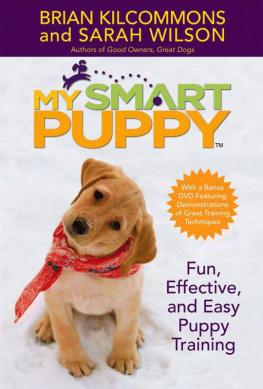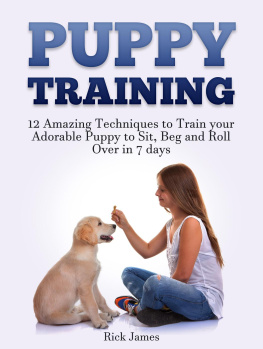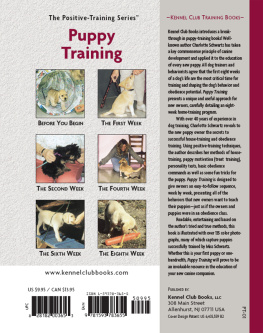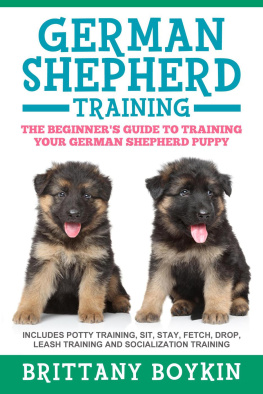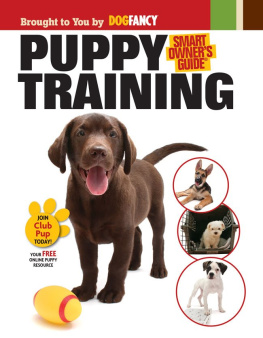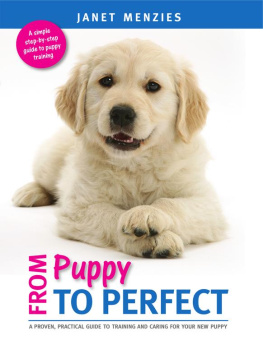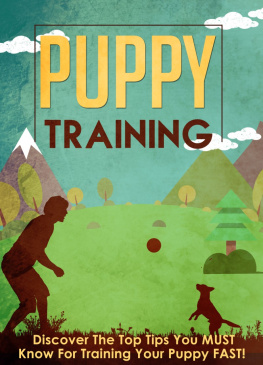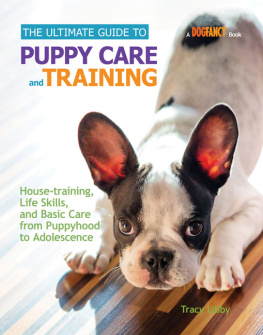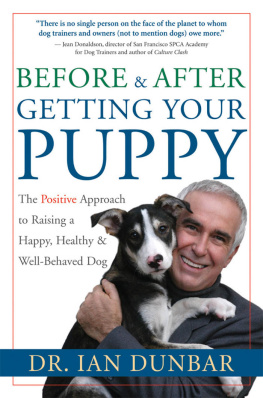Copyright 2006 by Brian Kilcommons and Sarah Wilson
All rights reserved. Except as permitted under the U.S. Copyright Act of 1976, no part of this publication may be reproduced, distributed, or transmitted in any form or by any means, or stored in a database or retrieval system, without the prior written permission of the publisher.
Grand Central Publishing
Hachette Book Group USA
237 Park Avenue
New York, NY 10017
Visit our Web site at www.HachetteBookGroupUSA.com.
First eBook Edition: October 2006
Grand Central Publishing is a division of Hachette Book Group USA, Inc. The Grand Central Publishing name and logo is a trademark of Hachette Book Group USA, Inc.
ISBN: 978-0-446-55128-1
Contents
To all the shelters, rescue, and humane society personnel who work tirelessly to help one more homeless puppy find a loving, forever home
Pip and my first meeting. Pip approaches then rolls over, so I chat with her until she feels more confident. MELISSA FISCHER

Soon Pip makes friends. MELISSA FISCHER

We take a walk, Pip bounces alongI laugh. MELISSA FISCHER

I do a quick series of puppy tests. Here I cradle her to see if she struggles. She does not. MELISSA FISCHER

THIS IS YOUR PUPPY!

I t is the evening on November 30, and were about to get a new puppy! While scanning an Internet rescue site, a calm, intensely intelligent expression caught our eye. The fact that this puppy is also black, white, and tan, the color of our beloved late great Australian Shepherd, Caras, means we are hopelessly biased in her favor. Brian had to be in New York City on business, so I am driving out to Fishkill, New York, to meet this little one and her foster mother. As I pull into the parking lot of our meeting spot, I can see the puppy sitting next to a womans feet. She is smaller than I thought, which is good. She sits there, watching the world parade by, neither leaping at passersby nor shying away. I like her from thirty feet away and it only gets better. Sidling up, ears back, she greets me softly, politely. She is incredibly cute. Once weve met, we go for a little walk together. She bounces everywhere without mouthing. When a shopping cart rumbles by, she startles then walks behind it, curious. Excellent! She is charming. She is adorable. Flipping open my cell phone, I place the call to Brian: She is perfect! And Pip has found her home.
Dogs have entered our lives many ways. Brian got his Rottweiler, Beau, from a top show-dog breeder and judge. PJ, our well-mixed terrier, was a foster puppy who stayed. We found Caras in an ad in a dog magazine. Good dogs come from many places, each arriving with his or her own blend of instinct, personality, and experience. You and your puppy are embarking on an adventure, one that has been repeated millions of times over thousands of years and yet one that will be uniquely yours. If you pay attention on this trip, you will learn more than you ever expected about yourself, relationships, and communication.
Where do we begin this journey? Where every such journey begins, with understanding the other. This chapter is about what you need to know about your puppy before you move forward with his or her education, socialization, or housebreaking.
TEN KEYS TO UNDERSTANDING YOUR PUPPY
1. Eachpy Is Different
Even within a single litter of pups, there can be extreme differences, from outgoing and friendly to withdrawn and aloof. Are you and your siblings or cousins exactly alike? Neither are pups. This puppy of yours will be different from any dog youve had or will have. He has his own personalitywith features that amuse and parts that annoy, a total package. And as the old saying goes, the trick to being happy is not to get what you want but to want what you get. Your job, as his leader, is to build on his strengths while minimizing his weaknesses.
2. Your Puppy Is Not a Blank Slate

Your puppy arrives in your arms a package of instincts and hardwired behaviors. In some, those instincts / behaviors border on compulsions. Border Collies can stare obsessively at movement, Labradors may lose their minds over tennis balls, some Terriers bark almost nonstop. Your pup doesnt even, cant even, know there are other options. Saying No to a dog in the middle of an instinct-triggered behavior often doesnt help or if it does, it wont for long. No simply doesnt compute. No tells your puppy you are upsetnothing else. He needs alternatives, which you must supply. You must teach your Border Collie that he can look away, your Lab that he can leave the ball on the floor, your Terrier that he can sit quietlyas these ideas will never, ever occur to them.

3. Your Puppy Needs More than Love
Actually, love may be all your puppy needs, if love means meeting your puppys emotional, mental, and physical needs, even when you dont especially feel like it. But if by love you mean meeting your emotional needs first and foremost, even when that conflicts with the puppys needs, then that is not enough. What we say to clients is Do you love your puppy or do you love loving your puppy? If you love your puppy, doing what he needs is second nature. If you love loving your puppy, you will do what you want to do while complaining about your puppy. For example: Puppy urinates in kitchen overnight. Easy solution: Your puppy sleeps crated in your bedroom. If you love your puppy, you do that because you know it will help the puppy learn. If you love loving the puppy, youll refuse to take that action because you dont like crating her, and then youll create a problem
4. Minor Moments Matter
Every interaction you have with your puppy teaches her something. There is no small interaction. If your puppy steps in front of you and you move out of her way to avoid bumping into her, she learns that she can make you move. If, instead, you kept your feet low, your knees bent, and shuffled on through her, she learns that you can make her move. You may think, Who cares? Your puppy does and therefore you must. In social mammals, leaders walk and followers get out of the way. This is true in people, horses, and dogs. Those many minor moments teach your puppy who you are. If you teach her to push you around, walk all over you, and ignore you, it can create problems later. People often say that problems came out of the blue! but they are often the result of months of dismissing or missing the meaning of those minor moments.
5. To See It Is to Mouth It
Puppies explore their world with their mouths which, until about four months of age, contain tiny, pointy, needle-sharp teeth. Pups mouth things that move, like your cat or your pant leg. They gnaw on things with the same predictability with which young human children attempt to stick things up their nose. Its just going to happen at some point. This is not a bad puppy; this is a normal puppy. Plan for normal events to happen, so you can supervise, teach, and redirect to a better option. Avoid thinking that normal things like this wont happen and then being annoyed or surprised when they do.
Next page
